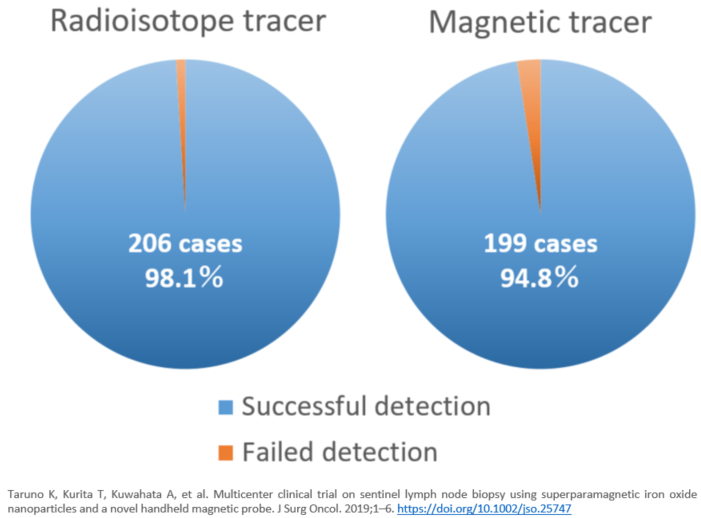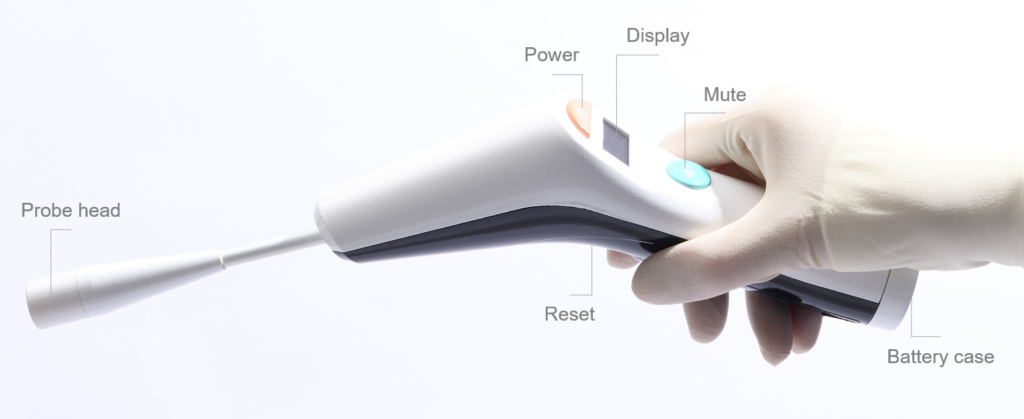TAKUMI is a magnetic probe for sentinel lymph node identification, designed to be used in conjunction with a magnetic nanoparticle tracer or fluid during sentinel lymph node biopsy (SLNB).
In a clinical trial with 210 patients, it was proven that magnetic tracers’ identification rate is comparable to that of radioisotope tracers. And unlike conventional radioisotope methods, SLNB with magnetic tracers and a probe like TAKUMI enable even small- to medium-sized medical institutions, that may not have nuclear medicine facilities, to accurately and objectively diagnose cancer metastasis.

We were able to fit all components of TAKUMI – including the permanent magnet and Hall sensor – into a compact, lightweight, handheld device, that can be operated by one person alone. The application itself is kept simple and straightforward, with only three buttons and an easy-to-understand LED display.

Originally developed for diagnosing breast cancer metastases, clinical trials to investigate TAKUMI’s effectiveness in other types of cancer are currently in progress, as a radiation-free, minimally invasive biopsy can greatly increase cancer patients’ quality of life.
TAKUMI has also proven to be effective in magnetically-guided localization of occult lesions (MOLL). We have therefore added this medical procedure to TAKUMI’s scope of application and were able to expand the magnetic probe’s CE Marking to include MOLL.
Supported by the Japan Agency for Medical Research and Development (AMED), TAKUMI is the result of a joint collaboration between researchers at the University of Tokyo and a team of renowned surgeons, aiming to create an alternative to conventional radioisotope technologies.
CE Marking of Conformity (NB: 0344, EC Certificate No.: 4201663CE01) for TAKUMI was acquired in July, 2019.
